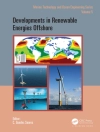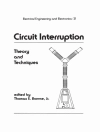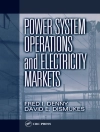Does the Earth contain enough oil to provide energy for the human race indefinitely? If not, how long will the oil last? What about renewable energy technologies like wind and solar? Will they be able to supply an indefinite supply of energy for the human race? If not, how long will it last? And what role does overpopulation play in our world’s energy supply? Even with multiple forms of energy available, how long will it last as long as more and more humans, and therefore more industries and energy consumption, are added? Taking a long-held theory called ‘Peak Oil Theory’ the authors of this groundbreaking new text examine the theory of ‘Peak Energy’ to examine all of these questions.
Crude oil and natural gas are the major sources of fuel used to supply energy for various needs. Users of crude oil and natural gas must take into account that these energy sources are, without doubt, non-renewable depleting resources, and the cost of extraction depends not only on the current rate of production but also on the amount of cumulative production. In fact, many pundits believe projections that the world is rapidly approaching a precipice, after which crude oil and natural gas will no longer be in ready supply.
This phenomenon has given rise to the peak oil theory – peak oil is the point in time when the maximum rate of petroleum recovery from the reservoir is reached, after which the rate of petroleum production enters terminal decline. From this concept has emerged the wider concept of the peak energy theory which, as it is related to the availability of all fossil fuels, is also subject to decline with fossil fuel use.
This text, written by two of the world’s most well-known, respected, and prolific writers in the energy industry, is a fascinating study of our world’s energy needs and the future of the multi-source energy supply on this planet. Whether oil and gas, wind, solar, geothermal, or even nuclear, all sources of energy have their limits, and we, as scientists, engineers, and consumers of energy need to be knowledgeable on these topics. This book is a must-have for any engineer, student, scientist, or even layperson interested in energy and the idea of energy sustainability on planet Earth.
Tentang Penulis
James G. Speight, Ph D, is a senior fuel consultant and Visiting Professor at the University of Trinidad and Tobago and Adjunct Professor of Chemical and Fuels Engineering at the University of Utah, USA. He is recognized internationally as an expert in the characterization, properties, and processing of conventional and synthetic fuels and has more than 40 years of experience in the process industries. He is the author of numerous books and papers, the senior editor on the Journal of Sustainable Energy Engineering, and he has won numerous awards and distinctions.
M. R. Islam, Ph D, is a world-wide consultant on environment and energy-related issues. Dr. Islam is known as the most published engineer in the world. He is credited to have coined terms, such as ‘green petroleum’ and ‘sustainable petroleum development’ at a time when ‘sustainable petroleum’ was considered to be an oxymoron. Dr. Islam’s most notable contributions are in the areas of sustainability, environmental integrity, and knowledge modeling, on which topic he has written dozens of books and over 700 research papers.












